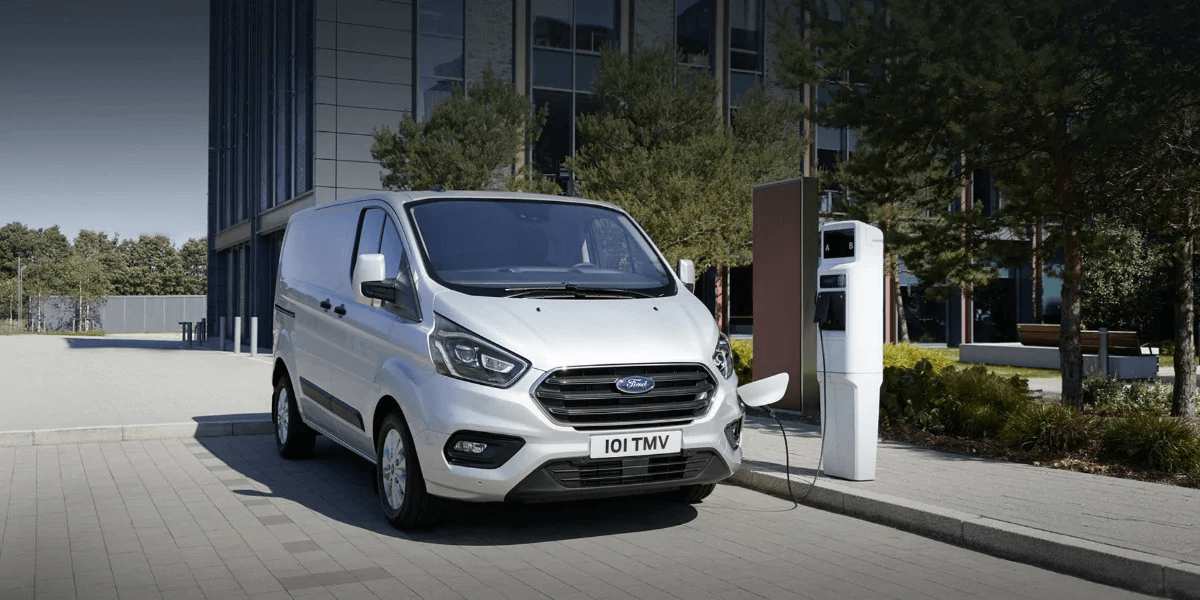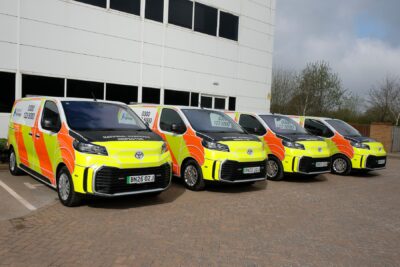Ford expands PHEV tests to Cologne
Ford is extending their field tests with plug-in hybrids to Cologne. In the Rhine metropolis, nine Ford Transit Custom PHEVs and one Tourneo Custom PHEV will be used in five municipal fleets for a year in different everyday scenarios.
Planned deployments include those at the electricity provider RheinEnergie and Cologne/Bonn Airport. The project is similar to the fleet test that Ford has been carrying out in Cologne since spring. Ten Transit Custom PHEV tests are to be carried out to investigate the extent to which hybrid drives can contribute to achieving local air pollution control targets. This twelve-month project will continue independently of the new field trial.
Following similar tests in Valencia and London, Ford regards the positive effect on local air pollution targets as proven – in the British capital, 75 percent of all inner-city journeys were purely electric. The task now is to “analyse and show the real-world benefits of such vehicles for the environment and for commercial vehicle owners and operators”. In addition, new geofencing and blockchain technologies are to be tested.
It is well known that the drive systems of the plug-in hybrids automatically switch to battery electric mode when the vehicle enters a predefined zone. What’s new is that dynamic geofencing can adapt to changing conditions in real time – for example, when access restrictions are relaxed or tightened due to weather conditions or air pollution. According to Ford, the PHEV transporters, which are networked via an on-board modem, then automatically switch to the purely electric driving mode even in environmental zones that have been extended at short notice.
The system should also record exactly when a vehicle enters a (temporary) environmental zone and when it leaves it again. “The emissions mode and time that vehicles enter or leave a controlled zone are recorded to a secure distributed ledger – a blockchain – ensuring emissions data is safely stored and shared among relevant parties including city authorities and the vehicle or fleet owners,” writes Ford.
“The blockchain technology we are testing here in Cologne enables secure, tamper-proof tracking and logging of vehicle emissions records, which makes it ideal for the PHEV pilot,” says Gunnar Herrmann, CEO of Ford-Werke GmbH. “Transforming our city fleets and using climate-fair vehicles is a matter of high priority to us,” says Henriette Reker, Lord Mayor of the City of Cologne. “Our goal is to achieve the best possible solution for climate-friendly mobility in all areas.”
The vehicles used are serial plug-in hybrids. The front wheels are driven exclusively by a 93 kW electric motor. If the 13.6 kWh battery is empty (after 56 km at the latest during transit and 53 km at the Tourneo), a 1.0 litre petrol engine recharges the battery as a range extender. According to Ford, this increases the range to up to 500 kilometres.
Both vehicles can now be ordered, and the first units are to be delivered this year. The geofencing module will also be available from 2020, and can be retrofitted in vehicles delivered up to then. According to Ford, a purely electric version of the Transit will probably be launched in 2021.





0 Comments